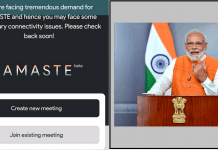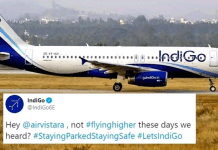Q. With regards to Puma, was franchising the only mode of expansion initially?
Yes! We began in 2007.
Q. Globally, is that the typical format being followed by you for expansion?
No, different geographies different ways. So, in current geography its only own operated and in certain other geographies only through franchising.
Q. With regards to India, what encouraged you to take up franchise route?
There were 2 simple reasons to it:
When we came in 2007, Foreign Direct Investment retail was not allowed, so we had no other option but to franchise.
When you have a country of the size of India with vast geography and you are doing small box retail and you have to cover a geography of 200 cities, it’s operationally not possible to run on own operated business. One has to look at the franchising model.
So it becomes an obvious choice in a country like India to have to have a franchising mode.
Q. So how many franchise stores it would be currently?
330 overall stores. Out of which 50 stores are own operated and rest is through franchising.
Q. In terms of maintaining long term partnership with your franchisees, are there any specific activities you do to strengthen the bond?
We have mega shows happening twice in an year. All franchisees show up and they look at new product range, they get an opportunity to drive the entire organisation, the entire senior management. They also spend about 3 to 4 days with us here in Bangalore and that becomes the most effective time to discuss business and strengthen personal bonds. Also, once or twice during the year some of our top franchisees travel with us globally, we take them to our global headquarters and we spend some really good time strengthening the bond during that 5 to 6 day trip. Between these two events there is a lot of engagement and interactions happening with us.
Q. Are these the franchisee partners who have been with your company since the beginning?
Yes, most of the franchisees have been with us from vey old times.
Q. Considering the fact that PUMA is a much known brand, what kind of partners/franchisees approached you initially?
Actually getting franchisees is not such an easy task. We don’t support franchisees in commercial operations as the concept of minimum guarantee doesn’t exist. So people have to invest and take the risk of doing business. In the initial days many franchisees took a lot of time to get on board but whosoever came on board expanded more or less with us. Though we don’t share our commercial business under-rights their losses, but we do understand the problem as a retailer ourselves and we know that we will do everything possible to correct the situation.
In terms of new franchisees, people do come on board. But these days it’s more difficult as compared to earlier times.
Q. What was the profile of franchisees attracted by you initially?
10yrs back when we were opening franchisees, we hardly got people from the crate. They were a combination of distributors or completely new to trade people. Very few existing retailers or franchisees came on board with us. More or less they were first hand franchisees who joined hands with us.
Q. How many of the franchisees would be having multi units?
Basically most of them would be having it. Our general philosophy to have basic 5 to 10 stores per franchise. We kind of push them towards this philosophy. It helps having better attraction with the brand, it also gets mind share from all of us. Our basic intent is to never introduce a single store franchise, we would instead want a minimal 5-store franchise.
Q. So, these people typically have other businesses also or they are operation just PUMA franchise?
Some have other businesses running as well, but generally wherever we are franchising with them we end up taking a significant portion of them. I don’t like to partner with those people where I receive a very meagre amount of profit sharing.
Q. Any typical suggestion which have received from your franchisees and which you also incorporated in your business?
A lot of wholesale brands which open retail or outsource, they do it from a purely commercial aspect. They don’t understand the fact that not every wholesale brand can be retailed. Most of wholesale brands should only be sold in multi-brand stores. The infrastructure, brand, the environment, such parameters allow you to open franchise stores. You need a full time projection team, merchandising team, VM team, etc. are very critical element required to run a franchise operation along with robust IT structure. A lot of time you don’t require these skill sets to run multi-brand operation and wholesalers typically think that this way they will get more business, not realising the fact that there are five to six more elements which need to come into play before a store starts doing well. And franchisees have to evaluate that very carefully as what the brand is, other than giving a brand name as to what they are getting on the platter. In a hurry to sigh-up a store, wholesalers don’t have clear view of what they would end up requiring. The other thing is that lot of wholesalers are not retailers, so they don’t understand the problem of retailers and their situations. When you do your own retail, it’s quite a challenge unlike us who interact with customers and consumers on a daily basis. So, when there is consumer issue, policy mismatch, or any other issue happening, we retailers are the first to understand the as we interact with consumers on a daily basis. So any day our response is faster, quicker and more aligned. Before the franchisees come and share problems with us, we are already aware of the market problems.
So when franchisees are looking to sign a brand, they should see to people who themselves have experience in handling the day to day retail In India. As soon as they have an understanding day to day retail In India, franchisees will get supported.
Q. If we talk about the most profitable franchise store, which one it would be?
Mohali, largely because the rents are very low and support is pretty high. Bombay is one of those challenging places in India where the rents are high and selling is a challenge.









